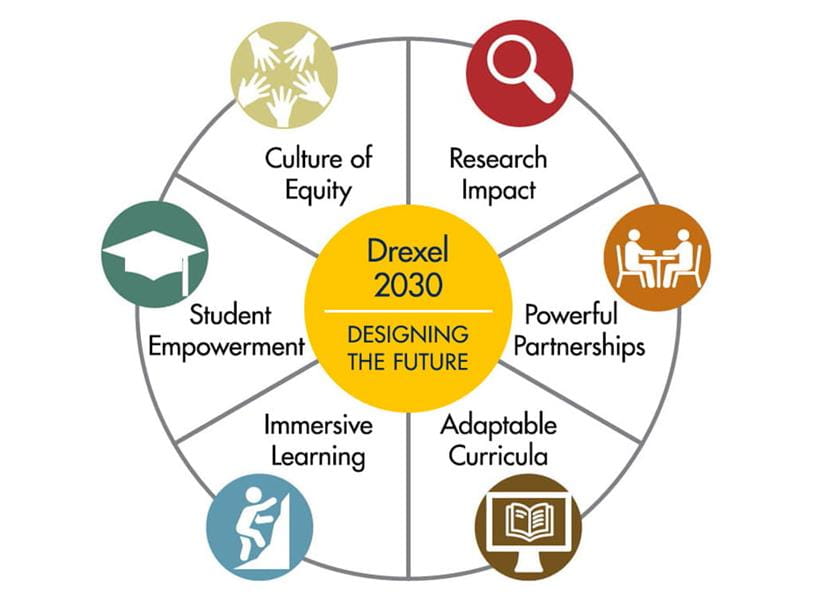
Drexel 2030
Designing the Future
Drexel University’s Strategic Plan, Drexel 2030 – Designing the Future, provides a road map for the University to fulfill its mission, better the campus experience, and enhance community impact.
A strategic plan is intended to make our University a better place for its entire community.
- Elisabeth J. Van Bockstaele
Chief Strategy Officer

Learn about Drexel University’s Strategic Plan and what it measures and means for the community in and around Drexel.

Drexel University's shared values provide the foundation and guidance for all decision-making and the actions of all community members.

Drexel University has identified six imperatives that will guide us in building a sustainable culture of education, scholarship and collaboration.

Learn about Drexel University's Strategic Plan, developed under the direction of an Executive Planning Committee chaired by President John Fry that began work in October 2019.
